Horses Grazing While Riding? How To Prevent it
There is no need for a horse to eat grass while holding the bit in its mouth. It is a pain, and some people worry that the bit can cause the horse to choke on the grass. Even though some people believe it, it hasn’t been proven. But no matter how you look at it, the combination of grass and a bit is not a good thing.
So, how do you keep your horse from grazing while you ride it? One solution is to train your horse to understand that it is better to stop and eat and ignore the grass while it is moving.
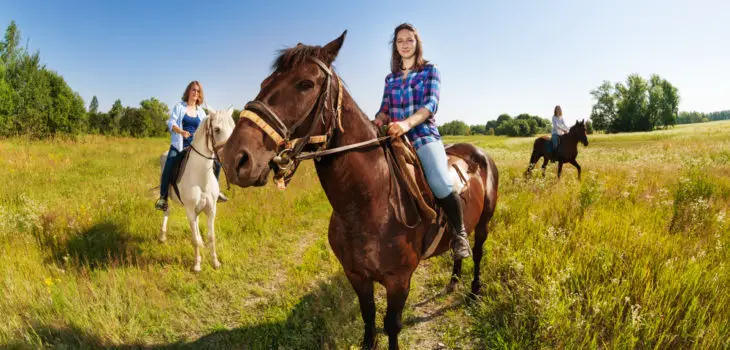
However, what if your horse has already detected the grass, and you cannot persuade them to do anything? This article focuses on horses’ grazing habits and how to change them.
Horse Riding Safety Measures
Riding a horse can be dangerous. To ride safely, you must maintain a good comfort level to avoid injuring yourself. There is no guarantee that safety equipment will prevent you from being hurt, so maintaining a good comfort level can be beneficial if you have an accident.
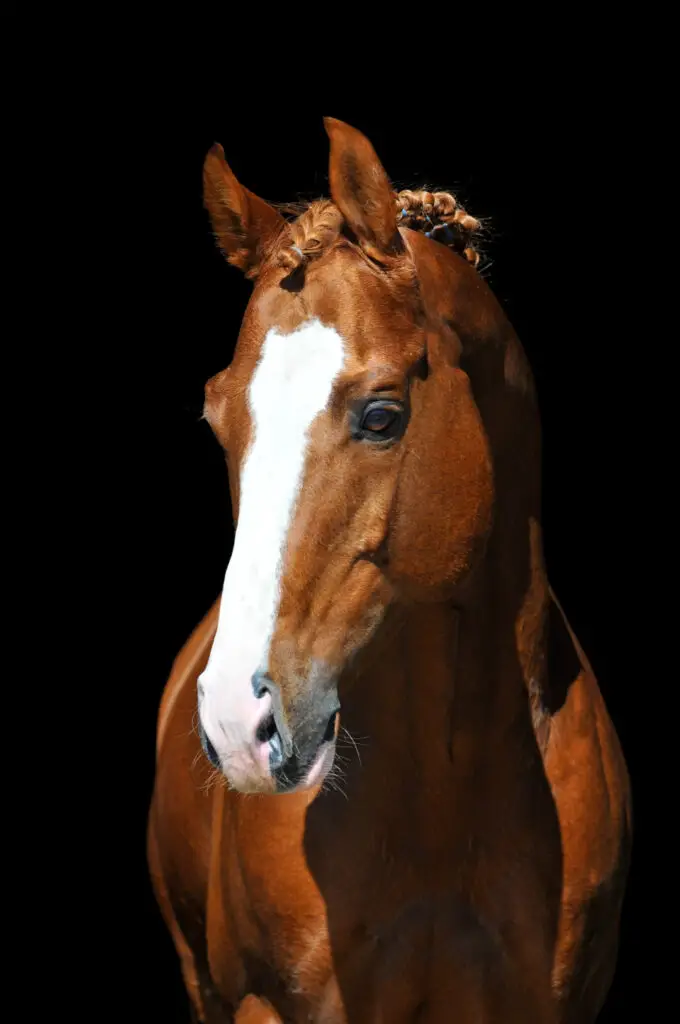
Your ride will be safer if you use safety gear, such as a helmet, boots, a crash vest, and stirrups. You can check this article to compare and find the best equipment that suits your needs.
Why Do Horses Form Habits?
Repetition is the key to training a horse in all aspects of its life. It means that it is easier for the horse to learn what the good and poor habits are by doing them repeatedly. For example, the more your horse attempts to graze while you are riding, the more likely it is that he has been successful in doing so in the past.
Every horse owner must go through this process to understand how horses develop. Please do not beat yourself up about it. The good news is that you do not have to deal with this bad habit for long.
In many cases, a horse who lowers its head during a ride to graze can also be quite aggressive while grazing on the ground. There is a good chance your horse will push or drag you over to a patch of grass if they spot it.
As part of your routine, you always let your horse graze while you groom him or after a ride. As a result, the horse will get used to it and expect it to remove it from its pasture or stall.
To break your horse’s habit of grazing at the same time each day, you will need to alter your schedule. Alternating their daily routine is always a good idea to keep your horse focused on you and your instructions, and not just the routine.
Make it a habit to avoid going to the same piece of grass at the same time every day. Your horse’s negative behavior will fade as soon as you stop repeating yourself.
Why does the Horse not Respond?
Horses who ignore your commands when food or grass is available are most likely ignoring you because they do not see you as a leader.
It is up to the alpha horse to determine who gets fed and who does not live in the wild. The other horses pay attention to the alpha and their behavior in the wild. Because it is in a horse’s nature to follow the lead of a dominant figure, you must first establish your leadership authority.
Your horse challenges your authority if they do not react to your commands. Horses are notoriously testy, and they will do everything to see how much they can get away with when working with a new human.
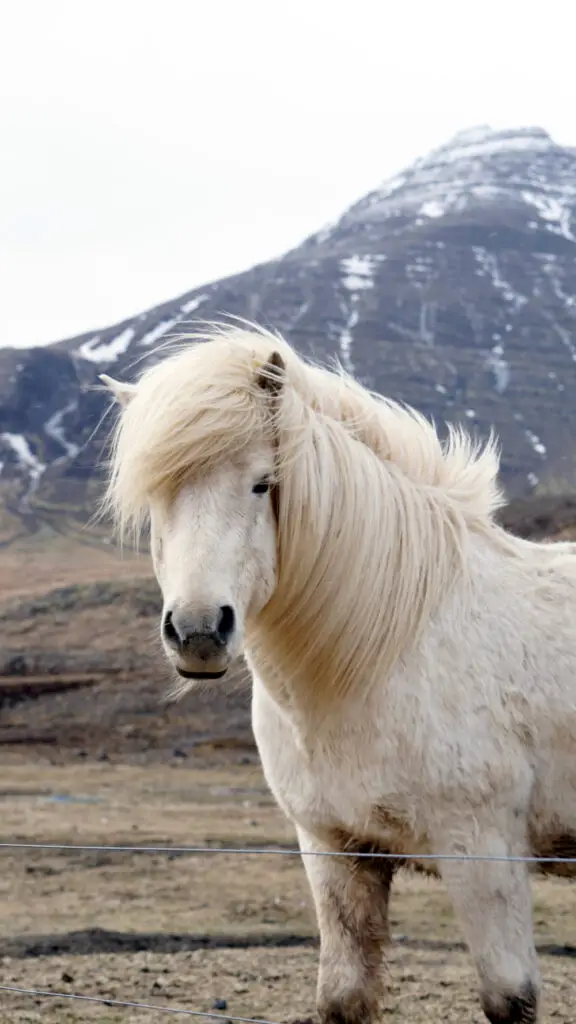
As a result, you and your horse must have a positive relationship. Let them know that bad and aggressive behavior will not be tolerated. Groundwork can help make this clear.
The goal of groundwork is to train your horse to respect your personal space and obey your commands by using your body language. Every horse and rider should be aware of this. It will improve their connection and strengthen their relationship.
Why Do Horses Graze?
Reason #1
Horses are prone to ulcers due to their fast metabolism. So, a tiny amount of grass between meals is beneficial to the stomach.
Reason #2
Horses need food to survive. Some activities, such as endurance racing, require a moderate calorie intake to sustain the energy level. So a little snack along the way might make the difference between if you are winning or losing the race.
Reason #3
Horses like to be ridden by people aware of and responsive to their needs. When you actively work with them daily, instead of just doing it once in a while, it psychologically positively affects your connection.
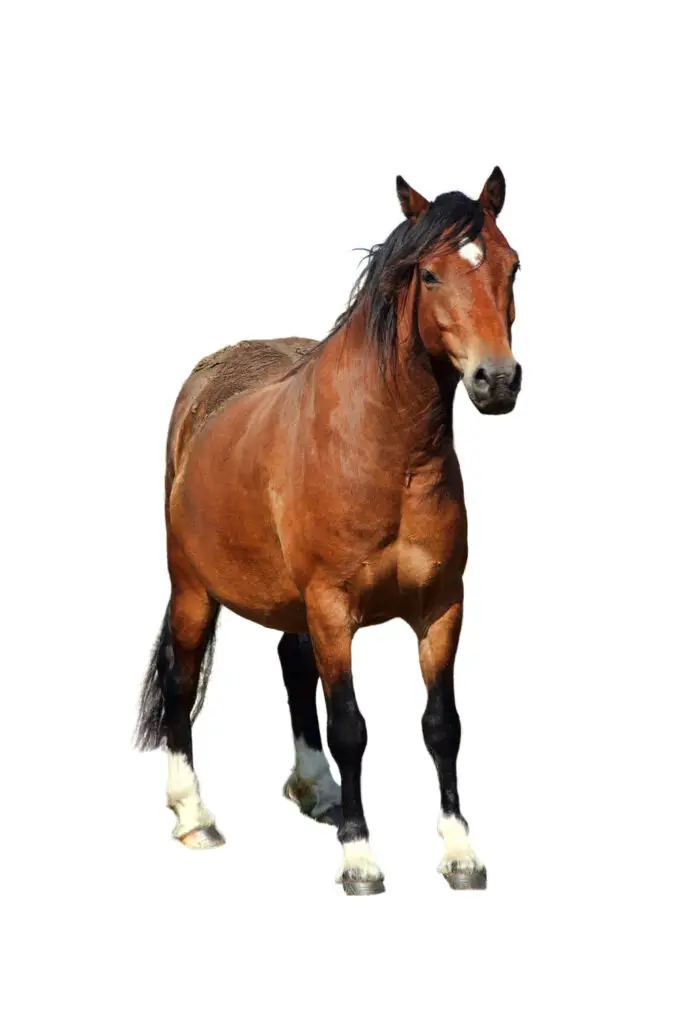
Curiosity can be stimulated by a snack and a good amount of calm and confidence.
Reason #4
Please don’t treat your horses as machines; they aren’t. So, don’t be that person who never lets your horse do what it was meant to do. Instead, you can both benefit from taking a break now and then.
Is Grazing while Riding a Bad Habit?
Eating while wearing a bit is most likely to be considered a bad habit by most riders. A lot of the time, the horse comes out on top in a conflict. Alternatively, you can test the theory that it eats anything it can find in the arena or on the way in from the field. And it will not be long before the horse discovers a way to do it on his own.
Also, you can check if the horse eats anything it finds on the way or eats when there’s grass/leaves nearby. The best approach to keep your horse from grazing is observing and training it.
How To Stop a Horse Grazing While Riding?
To keep the horse from putting its head down to eat grass, we typically attempt to do everything. A harsh tug on the reins, and the bit, is often the automatic reaction when frustration hits you, even though we all know it is wrong. You can avoid it by doing the following.
#1. Be in Command
To gain status as the alpha is essential. When your horse lowers its head, let it begin eating without even touching the reins or rope. Next, put your hand gently on the horse’s back and give it a smooch; continue by gently tapping his back, increasing the firmness of the tap until it raises its head. When it raises its head, you switch from tapping to rubbing it.
At first, the horse may respond with surprise and lower its head again. Repetition and more vigorous tapping are needed to get it to rise again.
A short smooch will get your horse’s attention and make it stop munching on the grass. The more you train your horse, the faster it will learn to wait for your command before grazing.
Whether or not you have allowed him to graze has become essential for your horse.
#2. Patience and Persistence
Be ready to test your patience with this one. But once you get the timing and firmness of the tapping right, the change is long-lasting, and it is a lot better and more effective than the old practice of pulling on the reins or the lead. Also, remember that it is not your fault your horse is grazing while you are out riding. It has probably been nibbling on the grass for much longer than you have been asking him to stop doing it.
#3. Create Energy
Use a whip to gently nudge the horse’s hindquarters, much as you would while riding a horse. It is all about generating energy from behind the horse to reduce front-end strain and get it to move forward with its head held up. This way, it will be easier for the horse to interpret your signals and commands.
#4. Shake the Reins
If the horse does not raise its head, try softly shaking the reins to get its attention.
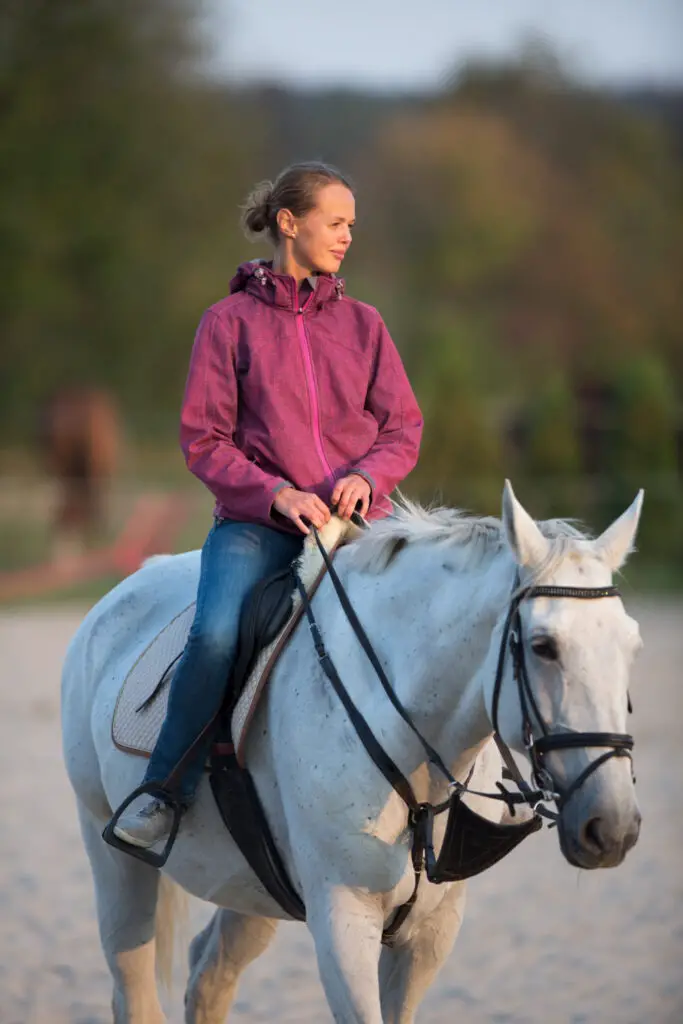
Pulling on the reins should be avoided if you want the horse to respond correctly and can cause pain in the horse’s mouth.
#5. Tap on the shoulder
You may also use three gentle taps with the reins on the horse’s shoulder while seated in the saddle to get its attention. Again, the horse’s attention will be directed at you instead of the tempting grass.
How to let your Horse Eat while Riding
Hold the reins tightly in one hand so that the horse does not run away. Then, remove the bit’s cheekpiece. One side of the bit should permanently be removed from the horse’s mouth. The horse now has a loose bit dangling from one side of its head. Tighten the bit, cheekpiece, and noseband by placing them under the horse’s mouth. Next, release the noseband and let your horse feed properly by enabling it to open its mouth as wide as possible.
Conclusion
On a ride, you may wish to teach your horse to quit nibbling on grass or teach your horse to disregard grass while a junior rider is riding it. It might be challenging to begin this training on your own. However, the horse will quickly learn with the proper training, enough time, and patience. Also, a healthy eating routine can be helpful. Good Luck!
